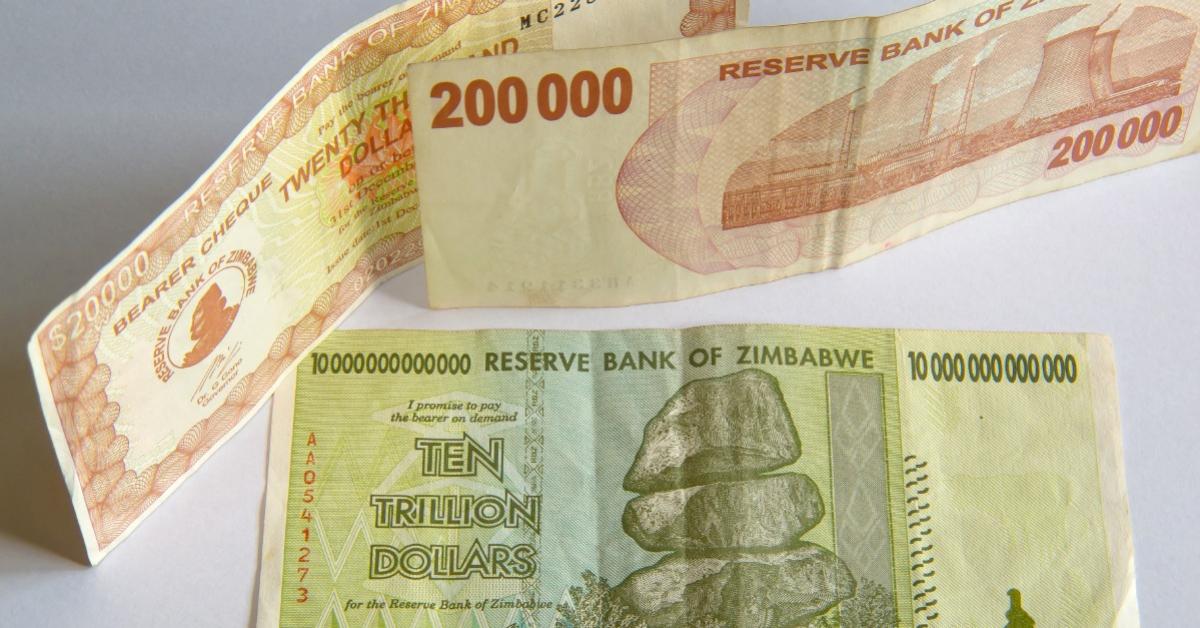
Because his actions were so outrageous, perhaps it is impossible to satirize the former president of Zimbabwe, Robert Mugabe, but perhaps I can describe him.
As a shout-out to all my neighbors in the Asia Pacific, let us not forget the Sun Tzu tradition to “know the enemy.”
For an analysis of the Zimbabwe hyperinflation, see Jayson Coomer and Thomas Gstraunthaler’s article in the Quarterly Journal of Austrian Economics.
Below, I draw similarities between Mugabe’s policies and Western central banks and discuss the effects of both on an economy’s productive capacity.
Perhaps for the staunchest communist, Mugabe was the final stage, the dictatorship of the proletariat, before the onset of utopia. Nonsense! Either utopia takes more than twenty years to dawn or the Zimbabwe Fed didn’t go hard enough in the decade of the 2000s.
Mugabe was a bad egg. His photo should be in the dictionary under “delusional.” To illustrate, I dissect a snippet from a statement Mugabe made in a 2009 Newsweek interview.
Mugabe said, “I’ve been condemned by traditional economists who said that printing money is responsible for inflation.”
Let us give these traditional economists the benefit of the doubt; no circular reasoning arguments for Zimbabwe’s inflation were ever spouted in the West.
Mugabe then said, “I found myself doing extraordinary things that aren’t in the textbooks.”
Mugabe acknowledged that he ignored these traditional economists, and his conduct was considered extraordinary.
Mugabe went on to say, “Out of the necessity to exist, to ensure my people survive, I had to find myself printing money.”
Apparently, hyperinflation was necessary to ensure his people survived. Mugabe had no aversion to gaslighting his people.
Finally Mugabe surmised, “I decided that God had been on my side and had come to vindicate me.”
No, God did not come to vindicate Mugabe. The former president might just rot in hell for his economic mismanagement alone, but that is a theological debate.
For Mugabe, there was no admission of failure, only adherence to a fanatical delusion. This despot ignored textbooks, told lies, used extraordinary measures, and just decided whatever he did was right. Mugabe was plain wrong, and his horrendous policy outcomes resulted in the destruction of “the food bowl of Africa.”
I suspect many of “Mugabe’s people” did not believe his propaganda, and similarly many in the West do not believe most Keynesian economists today.
The similarities between Mugabe, the global financial crisis bailouts, the covid stimulus, and the Federal Deposit Insurance Corporation (FDIC) bailouts are alarming. Today’s bailouts are described as decisive action.
One might think of the directional maps exclaiming, “You are here!,” at shopping malls or theme parks when reading some of the following elements of Mugabenomics:
Monetize government liabilitiesMaintain negative real interest ratesDistribute inflation propagandaContinually lower bank reserve requirementsNationalize industries (e.g., agricultural or banking capital stock)Impose import controls
We can point to numerous examples of the above monetary trickery in all the advanced Western economies. For example, the FDIC is bailed out via inflation and taxation, and new FDIC receiverships increase the nationalization of the banking industry.
At the risk of providing a Fed lightbulb moment, I provide examples of Mugabenomics that are employed less sparingly in the West, for now:
Price controlsBans on free markets (bulldozing farmers’ markets)Government insiders profiting from trading in banned foreign exchange (FOREX) marketsBans on private FOREX accountsSurrender requirements on exportersRestrictions on cash withdrawalsRedenominationAntiriot police at banks
Mugabe was criticized for quasi-fiscal activities. Bailouts of the banking industry are quasi fiscal. Quasi-fiscal activities allow the state to subsidize an industry—for example, the banking industry—without raising a new tax. The subsidy is paid for via inflation.
When quantitative tightening (QT) is deployed, the alternative passive investment offers a relatively higher return, or gain, on capital. With QT, the idea is that production slows or halts, capital is destroyed, and deflation occurs in factor prices. The more leverage, the worse the capital destruction, so deflation usually hits banks first. The idea of QT is to see orderly, or somewhat linear, deflation occurring in the price of goods and services throughout the economy. Good luck with that!
The worsening boom-bust crisis is caused by the disregard of marginalist economic theory. Free market ideas are virtually censored in the typical undergraduate macro course, yet it is the failure of capitalism that is blamed. It is near impossible to “see the unseen” while surrounded by a socialist fog.
Central banks engaging in quasi-fiscal activities must believe their “expertise” extends to all industry, all economic calculation. Thanks to the Austrian school’s ideas, more people understand that, like Mugabe, the central banks are plain wrong and unashamedly pandering to special interests.
Obviously, the Zimbabweans began using almost any scarce commodity or less inflated fiat as currency as a substitute for the Zimbabwean dollar (ZWD). The ZWD had become useless for conducting economic activity, except for perhaps performing one’s ablutions of a morning. Central bank digital currencies will be literally good for nothing as well.
Austrian school economists favor lower (or no) taxes and sound money. Removing the taxes on gold, silver, bitcoin, or any capital for that matter gives society alternatives to the currencies that may predictably become physical or digital toilet paper sooner than society would like. In the West, we have the option of avoiding the hunger games, but it will take reversing the current progressive tide.





